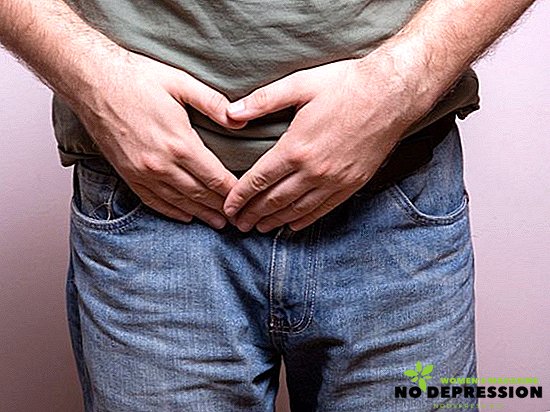If a person feels a constant feeling of hunger, then you should think about your health. The reason for such a deviation can only determine the doctor.

The reasons for the constant feeling of hunger
Nature has endowed man with many instincts. Hunger is one of them. It is controlled by the nutrition center, which is located in the cerebral cortex and is connected to the digestive organs through the endings of the central nervous system.
This center consists of two sectors: the “saturation section”, localized in the ventromedial section of the hypothalamus, and the “hunger section”, located in the lateral sector. Due to the impact on these points, the brain receives a signal of saturation or the need to add energy in the form of nutrients.
Brain sites that regulate nutrition can get this information from two sources: the nerve endings from the gastrointestinal tract and through the processing of information about the quantitative component of indicator substances that are in human blood. These include amino acids, glucose, lipids, which are obtained by splitting.
The reasons that can cause a constant feeling of hunger are different. For example, hyperoxia, when the patient always wants to eat, while the physiological needs for the replenishment of nutrients in the body are absent. Or hyperthyroidism, it is observed with increased production of an enzyme of the thyroid gland. Among other reasons:
 diabetes;
diabetes;- gastric diseases such as ulcers or gastritis;
- psychological dependence on food;
- mental strain;
- hormonal problems;
- high physical exertion, which entail a large loss of energy;
- nutritional restrictions;
- prolonged depression;
- constant stress;
- thirst;
- failure in the menstrual cycle;
- diet and nutrition.
The feeling of hunger comes when the stomach signals a lack of energy reserves in the body. In fact, it is the reaction of our body that protects the organs from exhaustion.
Normally, the process of impulse transmission is as follows:
- an impulse is given about the need to replenish the energy reserve;
- the body gets nourishment;
- the next impulse arises which indicates saturation;
- hunger passes.
But if you constantly feel the feeling of hunger, it means that one of the connections was broken. If the patient always wants to eat, it is necessary to identify the cause and apply adequate treatment, otherwise it can lead to obesity.
The source of the signal about the lack of food is the stomach, and along peripheral nerves it supplies impulse to the hypothalamus, which controls the level of glucose and other components in the blood. From this moment begins the work of the mechanism that triggers the chain reaction of neurochemical transformations. They provoke a response in the body: sucking in the stomach, rumbling.
In parallel, the necessary biochemical processes that support the internal balance of the environment. For example, the process of splitting fats is activated, the production of glucose is stimulated. After a person has eaten, a signal is sent from the stomach to the brain. The processes occurring at the saturation center are much more complicated.
The excitation of neurons in this area is called an indicator of secondary saturation. Before you receive a command that the body is saturated (when the glucose level reaches the norm), a small amount of time must pass after a meal. This indicator depends on the speed of eating, the amount of carbohydrates in food, the physiological characteristics of the body and other indicators.

The brain receives the primary signal of saturation from the receptors of the nose, oral cavity, eyes, after - from muscle tissue. Information about satiety indicates that food intake can be stopped. The body works in a complex, that is, if at least one system fails, it will destabilize the whole organism.
Strangely enough, but most often such an imbalance has an exciting effect on those areas that are responsible for the feeling of hunger.
You can often hear that a person is sticking with his problems, and this is partly true. Deep psychological difficulties, malfunctions of the endocrine system often produce a stable dominant for the production of food. Getting rid of this problem is quite difficult.
Symptoms of persistent hunger
A person begins to feel hunger when impulses begin to emanate from the stomach. In the normal state, a person begins to realize that he is hungry a few hours after eating.
The stomach starts to shrink, spasms last 30 seconds. After this comes a short break, then the spasms resume. After some period of time the cramps become permanent and are perceived more acutely. Further, rumbling appears in the stomach, there is sucking in the stomach.
Some emotional cells can suppress the feeling of hunger for a period. At the same time, it was noted that this feeling is most often experienced by people with high blood sugar levels. However, it is worth remembering that only a certified doctor can determine the cause of such symptoms.
After all, such a feeling of hunger can be the first signal of a serious illness of either an organic or psychological nature.
Constant feeling of hunger in the stomach
Modern food has led to the fact that many have atrophied the ability to eat, listening to their body. Modern man is very prone to emotional dependence on food. That is, a person eats for the reason that he wants to please himself with something tasty. So symptoms of bulimia nervosa may appear.
Many have forgotten what constitutes a natural feeling of hunger. A natural person feels a natural hunger after 2-3 hours after eating, but with psychological dependence or with failures in physiological processes, this feeling appears immediately after eating. Pathology of the central nervous system can cause constant excitation of the hunger center. To solve this problem very quickly will not succeed. Moreover, corrective diets, exercise, hypnosis, and a visit to a psychologist are powerless.
The main problems include:
 Hormonal abnormalities and endocrine system malfunction. Leptins and enzymes that are the product of adipocyte fat cells can cause excitation of brain structures. In its normal state, leptin has a calming effect on the brain areas responsible for hunger. With a decrease in energy reserves, the level of leptin increases dramatically, which provokes the need to eat. This signal indicates a lack of power.
Hormonal abnormalities and endocrine system malfunction. Leptins and enzymes that are the product of adipocyte fat cells can cause excitation of brain structures. In its normal state, leptin has a calming effect on the brain areas responsible for hunger. With a decrease in energy reserves, the level of leptin increases dramatically, which provokes the need to eat. This signal indicates a lack of power.- Vitamins. These substances are required for full healthy functioning of the body. But the body itself can not produce them. Vitamins are involved in the work of all organ systems. Their deficiency, especially B vitamins, can adversely affect not only the skin, hair and nails, but also the desire to eat. Thus, artificial or natural vitamin deficiency is often a provoking factor for the constant consumption of food.
- Diets, especially without carbohydrates. The main food of the brain is simple carbohydrates. Their lack may cause deterioration of the brain's nutrition, which can not but affect other functions of the body. The brain is starving and requires replenishment of resources spent. Against the backdrop of a carbohydrate-free diet, many people constantly experience a feeling of hunger, and especially an irresistible desire to eat something sweet.
Feeling of hunger during pregnancy
The body of a woman in the period of carrying a child is rebuilt to make a baby, then give birth to it and feed it. At the same time, hormonal background significantly changes. This may lead to the fact that women in this period have a constant feeling of hunger. Not the last place in such situations is occupied by stresses and nervous overstrain.
However, the ongoing desire to eat can be a signal that a woman has a deficiency of vitamins, magnesium, calcium or iron. Therefore, to remove symptoms, it is necessary to balance the diet. The diet should contain vegetables, fruits, vitamin complexes. It is necessary to try to minimize stressful situations, to spend more time in the fresh air.
The constant feeling of hunger makes the future mother seize him, which, naturally, will affect her overweight. A significant excess of body weight is harmful not only for the mother, but also for the unborn child.
Permanent hunger in children
Many mothers complain that it is difficult for them to feed the baby, because he refuses to eat. But there are other extremes, when the child does not have a saturation phase and is constantly hungry. The main reason is the failure of the digestive tract or metabolic processes. A fragile children's body rather quickly stimulates the development and increase in the size of the stomach. Naturally, the child needs more and more food to get enough.
Therefore, if parents observe a constant feeling of hunger in a child, it is imperative to consult a doctor. Only by finding the causes of dysfunction, you can assign a diet and treatment. But there are also some recommendations that will help parents:
- The child must be fed three to four times a day, removing snacks in between. This is quite enough for the normal development of the young body.
- You can interest and distract the kid with active games, while in the area of his visibility there should be no food, especially sweets.
- If, nevertheless, your child asks for food and between meals, it is recommended to replace buns with cookies, vegetables, and fruits.
- From childhood it is necessary to instill a healthy attitude to food in children, explaining that food is not the goal of life, but a means for active living of an interesting day.

If the mother herself is strongly on diets, complains of excess weight, then the child may have an increased interest in products. First of all, you need to change the parents themselves, reviewing their attitude to food. But if these recommendations did not help, you cannot do without visiting a nutritionist. You may need a psychologist.
Nausea and constant hunger
Often a person complains not only about the constant desire to eat, but also to nausea. A combination of these symptoms may indicate a serious illness. For example, about hypoglycemia.
This disease is characterized by low glucose levels, and the body seeks to fill this food shortage, especially by requiring sugary foods. By making a diagnosis, the doctor may prescribe the correct treatment.
Why is there a constant feeling of hunger after eating?
There are often cases when a person has only eaten and is already beginning to feel hunger. There are several reasons for this condition:
- Physiological and psychological causes of lowering blood glucose levels. Long-term imbalance of insulin and glucose, which can lead to diabetes, while the person is constantly experiencing a feeling of hunger. You can not stop it with food, because it gradually leads to overweight and obesity.
- Abrupt change in diet, for example, diet, a radical change of residence. For some time, there will be a restructuring of the human digestive system, because the body adapts to the conditions of nutrition.
- A significant limitation in the amount of food intake. If the stomach does not get enough food, it will constantly require it. Do not load your body daily amount of food at a time, it is better to break it into three or four approaches.
- Stress. The body, being in a negative excited state, requires hormones of happiness, which often boils down to eating tasty foods, thus stress is stuck. This trend provokes a strong connection between stress and food, and over time a person experiences a constant feeling of hunger if it is preceded by stress. In some cases, only a psychologist can break this connection.

- Excessive mental stress. It often happens that knowledge workers do not adhere to any regime, replacing a full-fledged lunch with snacks. With such a daily routine, you can begin to feel hunger literally 20 minutes after eating. Exit - the transition to a balanced diet. As a snack, it is better to use dried fruits.
A constant feeling of hunger after eating can also trigger a diet. An organism that is set within the framework of nutritional deficiencies seeks to make up for it even from the minimum amount of food, constantly demanding more and more products. It is very important to train yourself to a normal, balanced diet. This will avoid serious exhausting diets in the future.
Such symptoms can cause a lack of vitamins and trace elements. For example, if you are constantly pulling on salty, this is not only a sign of pregnancy, but also a signal of a lack of magnesium. The way out of this situation is the adjustment of the diet and the introduction of the necessary vitamins and minerals. Premenstrual syndrome can also provoke a constant feeling of hunger.
The reason is the absence in the body of the hormone estrogen. In order to smooth out a similar situation, during the period of the ICP it is desirable to limit the consumption of baking, sweets, increasing the intake of fruits and vegetables. In the same period, it is recommended to drink plenty of fluids.
Why there is a feeling of hunger during gastritis?
Increased acidity of the stomach can cause a feeling of hunger in gastritis. People who suffer from this pathology are well aware of the feeling of sucking pain in the stomach, which is drowned out even by a small amount of food.
And in order to somehow stop the desire to eat, you need to use a sparing diet, which the physician must write and control.
In this case, the daily intake of food should be divided into 5-6 receptions. From the diet you need to exclude fried, spicy, smoked, salty foods, strong tea and coffee.
Nutrition Tips
If the constant feeling of hunger is not caused by any problems and illnesses, it is recommended to correct your diet. There are some helpful tips:
- Use a large amount of fiber, drink plenty of pure water.
- An important role in this case is played by the size and color of the plate. It should be small so that it can hold a small amount of food, a light color.
- Eliminate the yellow, red colors, because they stimulate the appetite.
- Chew food needs to be slow and thorough. A slow meal will give the stomach time to signal to the brain that it is full and does not want to eat anymore. In the opposite case, if the stomach is already full, and the signal of satiety is not received, the person continues to consume excess food.
- It is not recommended to combine a meal with tea, reading a newspaper or watching a TV show. It is recommended to take a meal while standing, because it also provokes a desire to eat more.
- It is necessary to reduce the consumption of foods that increase appetite.
- The last meal should be no later than 2-3 hours before bedtime.
- When working, remove from the visible space any products.
- Find a lesson that will distract the brain from eating.
- If the reason for the constant feeling of hunger in psychological dependence, do not do without consulting a psychologist or a neurologist.
You may also need to be examined by an endocrinologist or a gastroenterologist, since the causes of this problem may be hidden in the failure of hormonal background, thyroid disease or gastrointestinal tract.


 diabetes;
diabetes; Hormonal abnormalities and endocrine system malfunction. Leptins and enzymes that are the product of adipocyte fat cells can cause excitation of brain structures. In its normal state, leptin has a calming effect on the brain areas responsible for hunger. With a decrease in energy reserves, the level of leptin increases dramatically, which provokes the need to eat. This signal indicates a lack of power.
Hormonal abnormalities and endocrine system malfunction. Leptins and enzymes that are the product of adipocyte fat cells can cause excitation of brain structures. In its normal state, leptin has a calming effect on the brain areas responsible for hunger. With a decrease in energy reserves, the level of leptin increases dramatically, which provokes the need to eat. This signal indicates a lack of power.










